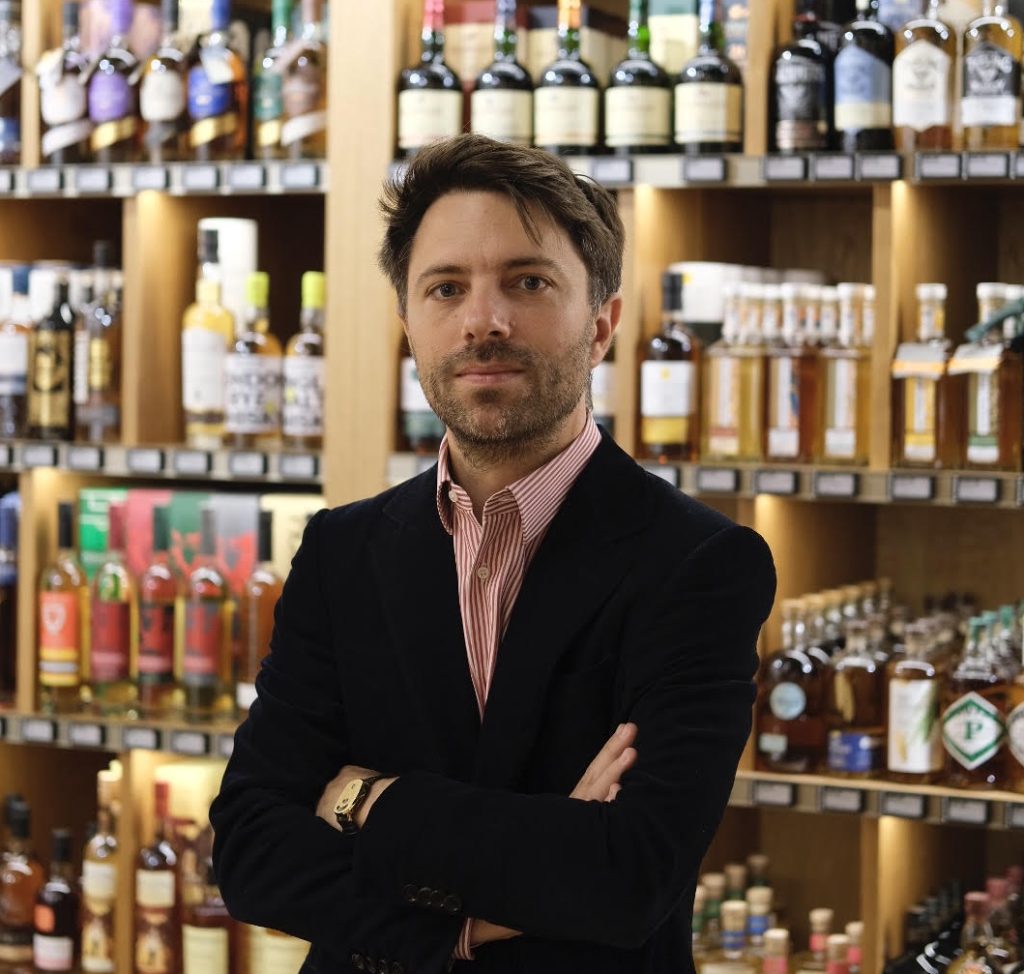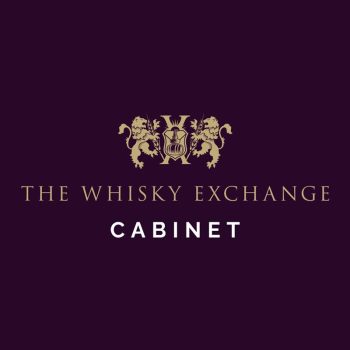This website uses cookies so that we can provide you with the best user experience possible. Cookie information is stored in your browser and performs functions such as recognising you when you return to our website and helping our team to understand which sections of the website you find most interesting and useful.
NFTs and rare spirits: a new era beckons
The use of NFTs and Blockchain technology has “a lot of implications” for the world of rare and collectable spirits, says the boss of The Whisky Exchange – but now there will be a fresh focus on the product, rather than the tech. Richard Woodard reports.

February will mark the first significant new initiative for online retailer The Whisky Exchange (TWE) since its 2021 acquisition by Pernod Ricard: the launch of The Whisky Exchange Cabinet.
Described by the company as “a global destination for collectors and connoisseurs of whisky and fine spirits to purchase rare and exceptional bottles”, the Cabinet will bring to market exclusive releases in association with leading distillers, underpinned by smart contracts and Blockchain technology. It will also allow these products to be traded via the Cabinet’s secondary marketplace, with the transactions again made secure and transparent via the Blockchain.
As the company invites potential customers to register their interest at www.thewhiskyexchange.com/cabinet, TWE CEO Nicolas Oudinot is remaining tight-lipped about the first Cabinet launch from what is billed as “one of the most famous distilleries in the world”, due in early February. “I wish I could tell you more,” he says. “But there’s nothing I can do – there’s an embargo in place.”
The relationship between rare whisky and NFTs/Blockchain tech has been somewhat rocky to date. After an initial rush of releases a couple of years or so ago, mainly from single malt Scotch brands, the bubble burst almost as quickly as it was created – amid reports of collector apathy and releases being quietly shelved.
“First of all, the tech existed, but nobody was using it,” says Oudinot. “Then there was the NFT explosion, with prices that were completely crazy. A good portion of these projects collapsed in the past months.
“With a number of the projects that came to market until now with similar intent [to the Cabinet], they’ve been very much focusing on the NFT, and the bottle comes with it. We’re trying to do that the other way around, although technically it’s not that different. We are not selling NFTs, we are selling rare bottles of whisky. We are trying to talk to everyone – and to democratise it.”
Oudinot describes the Cabinet as “a kind of extension to the Whisky Exchange website”, dedicated to rare and collectable bottles. All are exclusive to the platform, and all use NFTs and Blockchain technology, with smart contracts outlining a number of owner benefits, such as storage, insurance and so on – plus the ability to resell via the Cabinet’s marketplace.
Perhaps the most obvious benefits of the tech are authentication and traceability, along with the facilitation of financial transactions when a resale takes place. Meanwhile, the product remains safely stored in the TWE warehouse. “You can sell the item without moving it,” explains Oudinot. “And the less you move it, the more you preserve the quality and the authenticity. We feel that this is really increasing the value that we can provide to the consumer.”
Traceability can go right back to the point of distillation (or even beyond, including information about malt and barley sourcing, etc) and forward to the final delivery of the physical bottle to the consumer, if and when they want to drink it or store it in their own collection at home.
In a rare whisky market that remains riddled with fakes, the potential reassurance offered to collectors is obvious, but there are possible benefits for distillers too. If and when a bottle is resold, a portion of the proceeds can go back to the distiller as part of the smart contract, meaning that, potentially, the company that created a whisky can benefit from a subsequent increase in its secondary market value.

The tech offers distillers traceability as well: given that the information on the blockchain is publicly visible (except for the identity of the whisky’s owner), they can have more information on what has become of their whiskies after their initial sale. Meanwhile, for those buying and selling, it simplifies the resale process and removes the need to go to an auction house or broker (with the extra cost that that entails).
TWE is starting small with the Cabinet, Oudinot says. “We’re in the early stages of using the technology, so we will start with a low cadence of highly differentiated and exceptional products,” he explains. “It takes time to design projects like this, and we don’t want to just recondition a launch meant for something else.” He expects “a few” launches in the first year, with an emphasis on quality over quantity.
While whisky is the initial focus, other rare spirits are likely to follow – and possibly wine too, although the model is different, given the general need for extended maturation, and the way that it evolves in bottle. Oudinot is rather more cautious about trading casks of whisky, though: “You enter much more the investment and speculation area, and we are not an investment company,” he says.
As the relationship between rare and collectable spirits and Blockchain tech evolves, Oudinot believes that, in time, the conversation will centre more on the benefits, and less on the esoterica around the technology itself. “The NFT becomes the technological layer, not the product per se,” he explains.
“Think about HTTPS – Hypertext Transfer Protocol Secure. Who knows what it is? But you are using it a number of times a day when you access the internet without thinking about it. Probably in a few years you will be using an NFT protocol without knowing you are using it. It’s the beginning of a new phase.”
Related news
Thousands of hospitality businesses 'put on ice' by Scottish Budget

